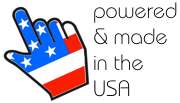SEO remains a cornerstone of online success. While high-quality content and technical SEO are critical, strategic link building—both incoming (backlinks) and outgoing links—can supercharge your search rankings, drive targeted traffic, and build trust with your audience.
Let’s break down how these links work and how businesses in retail, restaurants, hospitality, construction, healthcare, and professional services can leverage them.
What Is Link Building?
Link building involves creating and acquiring links from other websites to your own. These links can be categorized into two main types:
- Incoming Links (Backlinks):
Links from other websites that point to your site. Backlinks are a vote of confidence from other websites, indicating that your content is valuable and trustworthy.
- Outgoing Links:
Links from your website to other relevant and authoritative sites. Outgoing links can enhance the user experience by providing additional resources and information.
Benefits of Proper Link Building
- Better Search Ranking:
Search engines like Google use backlinks to gauge the authority and relevance of a website. More quality backlinks often lead to higher rankings.
- Increased Qualified Traffic:
Link trades with complementary sites can drive targeted traffic to your site, increasing the likelihood of conversions.
- Improved Customer Service Perception:
Providing valuable outgoing links can enhance your brand's reputation and customer loyalty.
- Higher Consumer Confidence:
Quality links signal to users that your business is reliable and knowledgeable.
Pro Tip: Always prioritize relevance and quality over quantity. A single link from a trusted industry site is worth more than 100 spammy links.
Industry-Specific Link Building Strategies
Retail
- Incoming Links:
Partner with local business directories, industry associations, and popular review sites like Yelp or Google My Business. For example, a boutique clothing store can seek backlinks from fashion blogs and local shopping guides.
- Outgoing Links:
Link to supplier websites, customer service resources, and related retail blogs.
Actionable step: Create a "Resources" section on your website with links to trusted suppliers and fashion tips.
Restaurants
- Incoming Links:
Collaborate with food bloggers, local event calendars, and restaurant review platforms. A high-end restaurant can seek backlinks from culinary magazines and food critic websites.
- Outgoing Links:
Link to local suppliers, event organizers, and food safety resources.
Actionable step: Include a "Local Partners" page with links to your favorite local suppliers and community events.
Hospitality
- Incoming Links:
Build relationships with travel blogs, tourism boards, and event planners. A hotel can seek backlinks from travel guides and booking platforms like TripAdvisor and Airbnb.
- Outgoing Links:
Provide links to local attractions, transportation services, and travel tips.
Actionable step: Create a "Visitor's Guide" on your website with links to top tourist spots and local transportation options.
Construction
- Incoming Links:
Partner with industry associations, construction material suppliers, and local government websites. A construction company can seek backlinks from building codes websites and industry news sites.
- Outgoing Links:
Link to safety guidelines, industry standards, and material suppliers.
Actionable step: Include a "Safety and Compliance" section on your website with links to OSHA guidelines and industry best practices.
Healthcare
- Incoming Links:
Collaborate with health blogs, patient advocacy groups, and medical associations. A dental practice can seek backlinks from oral health resources and patient review sites.
- Outgoing Links:
Provide links to patient education materials, health insurance providers, and referral networks.
Actionable step: Create a "Patient Resources" page with links to trusted health information and insurance options.
Professional Services (Legal, Accounting, etc.)
- Incoming Links:
Partner with industry associations, legal or financial blogs, and local business directories. A law firm can seek backlinks from legal news sites and client testimonials.
- Outgoing Links:
Link to relevant legal or financial resources, government agencies, and client support services.
Actionable step: Develop a "Client Support" page with links to legal forms, financial calculators, and government resources.
Best Practices for Link Building
Key Tips to Remember
- Quality over Quantity:
Focus on acquiring links from reputable sites within your industry.
- Relevancy is Key:
Ensure that the sites you link to or receive links from are relevant to your business.
- Avoid Link Farms:
Stay clear of sites that have numerous unrelated outgoing links, as they can damage your SEO.
- Monitor Your Links:
Regularly check your incoming and outgoing links to ensure they remain relevant and beneficial.
Tools to Simplify Link Building
- Ahrefs/Moz:
Analyze backlink profiles and track competitors.
- Google Search Console:
Monitor your site’s inbound links.
- Help a Reporter Out (HARO):
Connect with journalists for backlink opportunities.
Final Thoughts
Strategic link building isn’t a one-time task—it’s an ongoing process that aligns with your business goals.
By applying these actionable steps tailored to your industry, you can build a robust online presence that not only improves your search engine rankings but also drives significant, qualified traffic.













